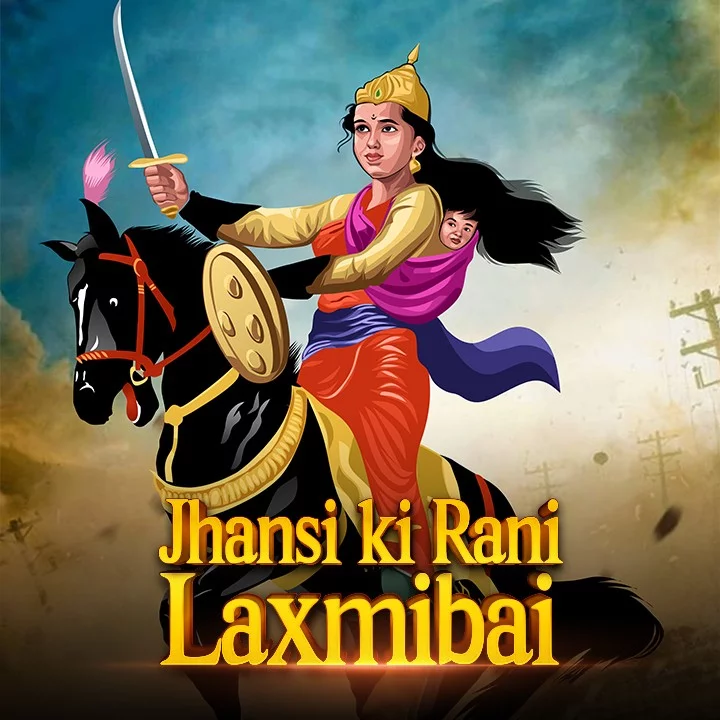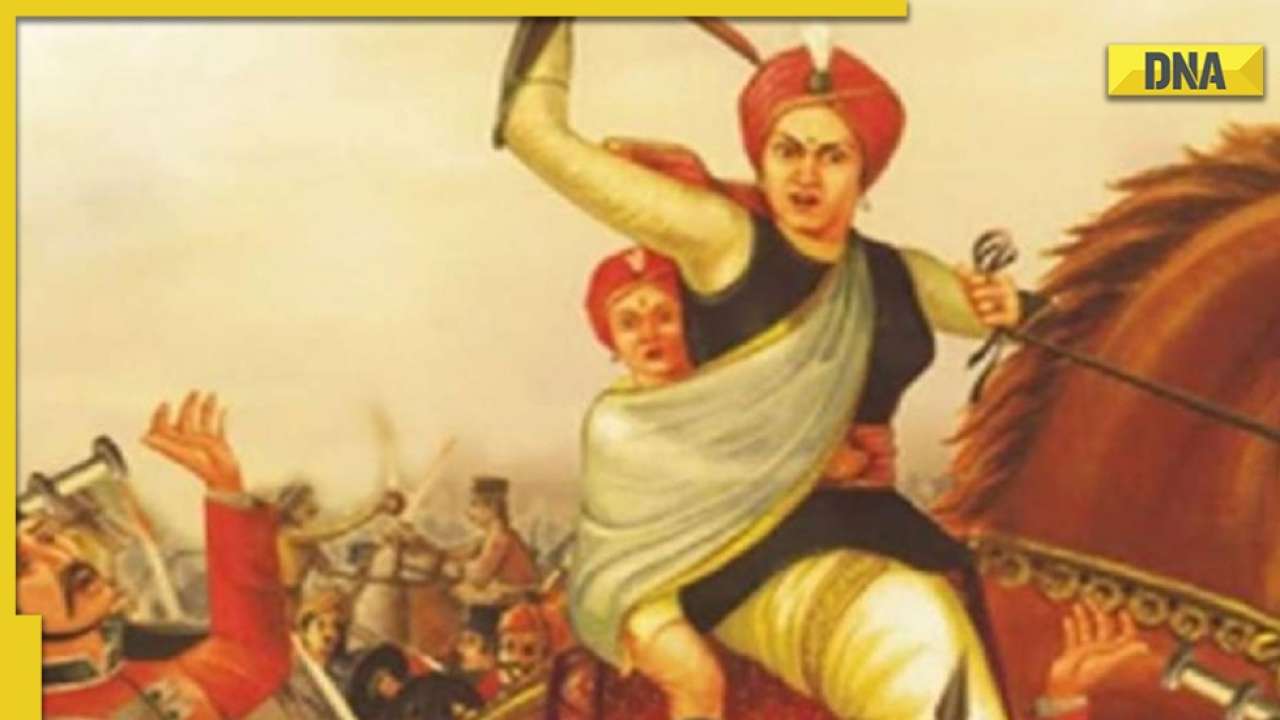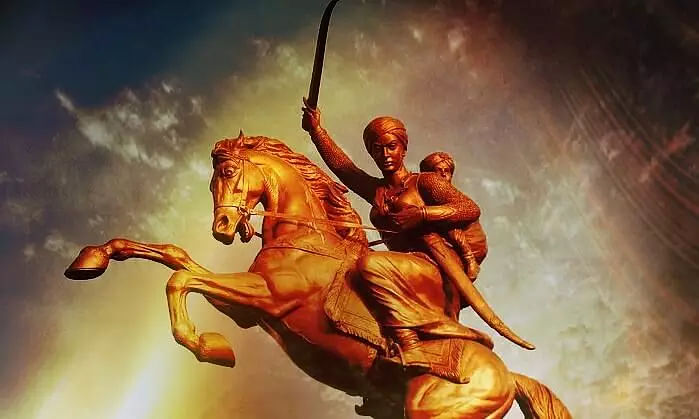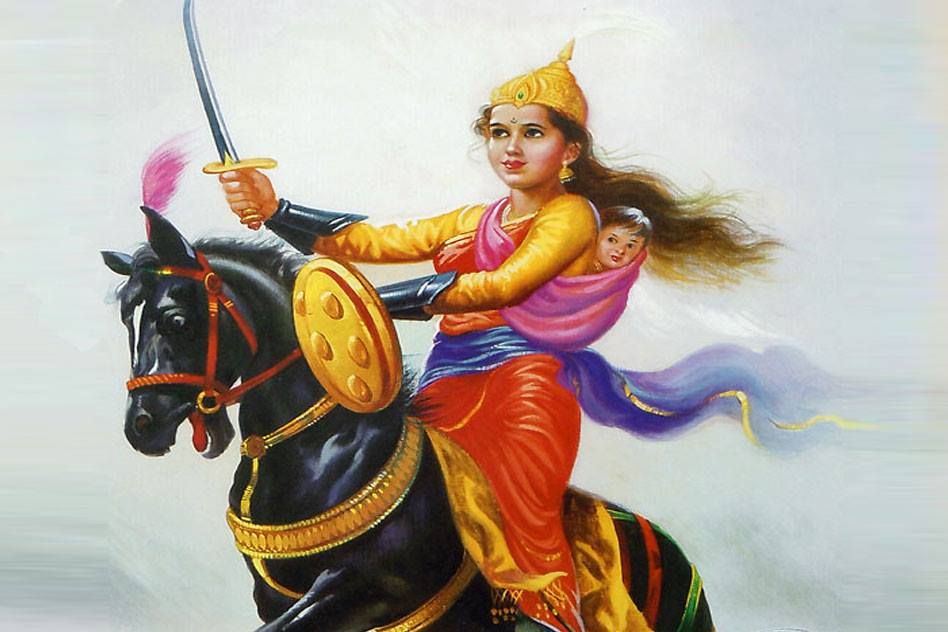Jhansi Rani Lakshmi Bai was one of the most influential and iconic figures in Indian history. She is best known for her role in the Indian Rebellion of 1857, also known as the First War of Independence, where she led the resistance against the British East India Company in the kingdom of Jhansi.
Born in 1828 in Varanasi, Uttar Pradesh, Rani Lakshmi Bai was named Manikarnika and was the daughter of Moropant Tambe, a high-ranking official in the Maratha court. She was married to Maharaja Raja Ram Singh II of Jhansi at the age of 14 and was given the title Rani (queen) upon her husband's death in 1853.
As Rani of Jhansi, Lakshmi Bai was known for her intelligence, bravery, and determination. She was a skilled warrior and an able administrator, and she worked tirelessly to improve the lives of her people. She implemented various social and economic reforms, such as the construction of roads and schools, the abolition of taxes on essential goods, and the promotion of trade and industry.
However, it was Rani Lakshmi Bai's role in the Indian Rebellion of 1857 that cemented her place in history. The rebellion was sparked by a number of factors, including widespread discontent with British rule, economic exploitation, and cultural alienation. As the rebellion spread throughout India, Rani Lakshmi Bai emerged as a leader of the resistance in Jhansi.
Rani Lakshmi Bai led her army against the British, and her bravery and tactical expertise earned her the admiration of her soldiers and the respect of her enemies. Despite being vastly outnumbered and outgunned, she fought bravely and tenaciously, earning the nickname "The Warrior Queen of Jhansi."
In March 1858, the British besieged the city of Jhansi and Rani Lakshmi Bai led her forces in a fierce and heroic defense of the city. However, the British eventually prevailed and Rani Lakshmi Bai was forced to flee, leading her army on a daring retreat through enemy lines. She was eventually killed in battle in June 1858, but her legacy lived on as an inspiration for future generations of Indians fighting for independence.
Rani Lakshmi Bai's contributions to the Indian independence movement and her enduring legacy as a symbol of resistance and courage have made her an enduring figure in Indian history. She is remembered as a national hero and a symbol of strength and determination in the face of adversity.
Rani Lakshmi Bai

She was martyred for the cause of freedom. In the words of Lord Krishna, we will if we are victorious, enjoy the fruits of victory, if defeated and killed on the field of battle, we shall surely earn eternal glory and salvation. Renamed Lakshmi Bai, the young rani bore one son in 1851, but he died four months later. In 1858, when the British troops finally arrived to take control over Jhansi, they found that it was well armed and guarded by guns and canons all around the walls. Compared to the unrest in the region, Jhansi was comparatively calm. Two divisions of the army entered the Fort.
Jhansi Rani Lakshmi Bai: An Epitome of Bravery

She fought for the right of an adopted child, the right of a woman to rule the kingdom while her chosen heir was a minor, the right of women to wear uniforms in war, the freedom to live and rule instead of becoming sati, the right of each and every 'citizen' of her empire, female or male, Muslim or Hindu, or otherwise, to participate in the battle for independence. But not the Queen of Jhansi. Lakshmibai was not able to persuade other rebel leaders to defend the force and on June 16, 1858, British forces made a successful attack on Gwalior. Lakshmibai's tomb is situated in the Phool Bagh area of Gwalior. Several protests for identity, authority, territory, regional identity, conquest for kingdom over the years have been clubbed under the name of patriotism. London: Sphere Books, p. Her mother passed away when she was just four years old and her father brought her up solely.
Biography Of Queen of Jhansi Maharani Laxmi Bai

Three days after the death of Lakshmibai, the British captured the Fort of Gwalior. Rani Lakshmibai pushed forward the extra courage and bravery she had to not only manage a kingdom, but to lead and organize an entire army. Soldiers were required to bite off the paper cartridge containing the gunpowder to load into their rifles. In 1842 she became the second wife of Gangadhar Rao Niwalkar, the childless raja of Jhansi, a principality in Bundelkhand. During this time, she was escorted by her guards— Khuda Bakhsh Basharat Ali commandant , Gulam Gaus Khan, Dost Khan, Lala Bhau Bakshi, Moti Bai, Sunder-Mundar, Kashi Bai, Deewan Raghunath Singh and Deewan Jawahar Singh. While the battle was still going Rani Lakshmibai realized winning was difficult and she left the battleground with her young son tied to her back.






